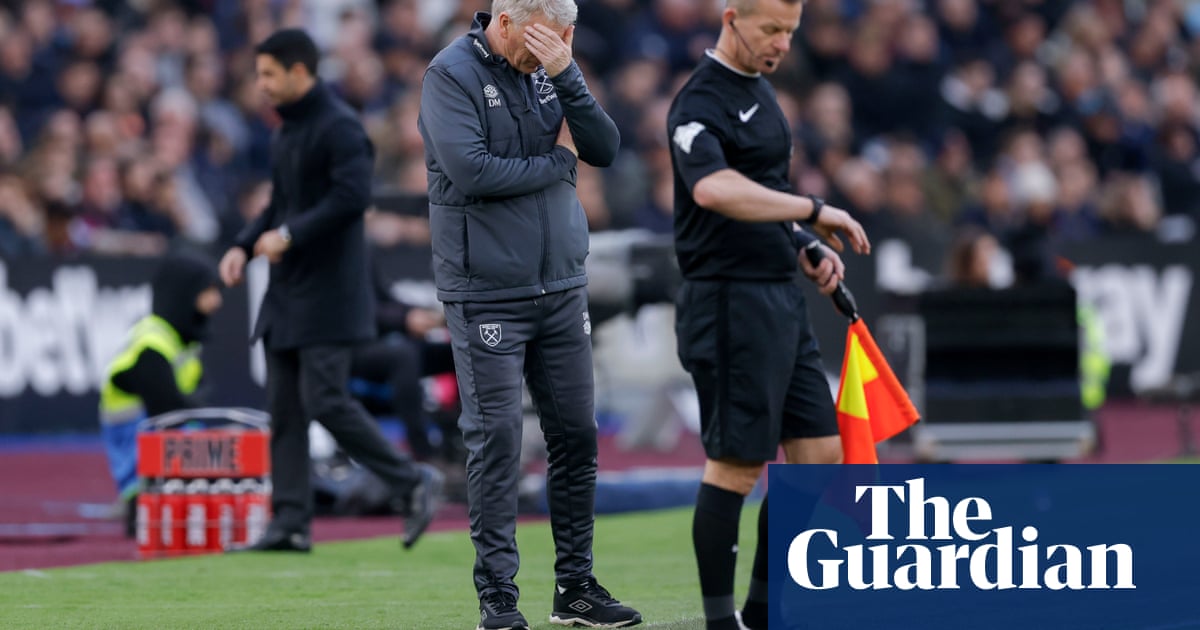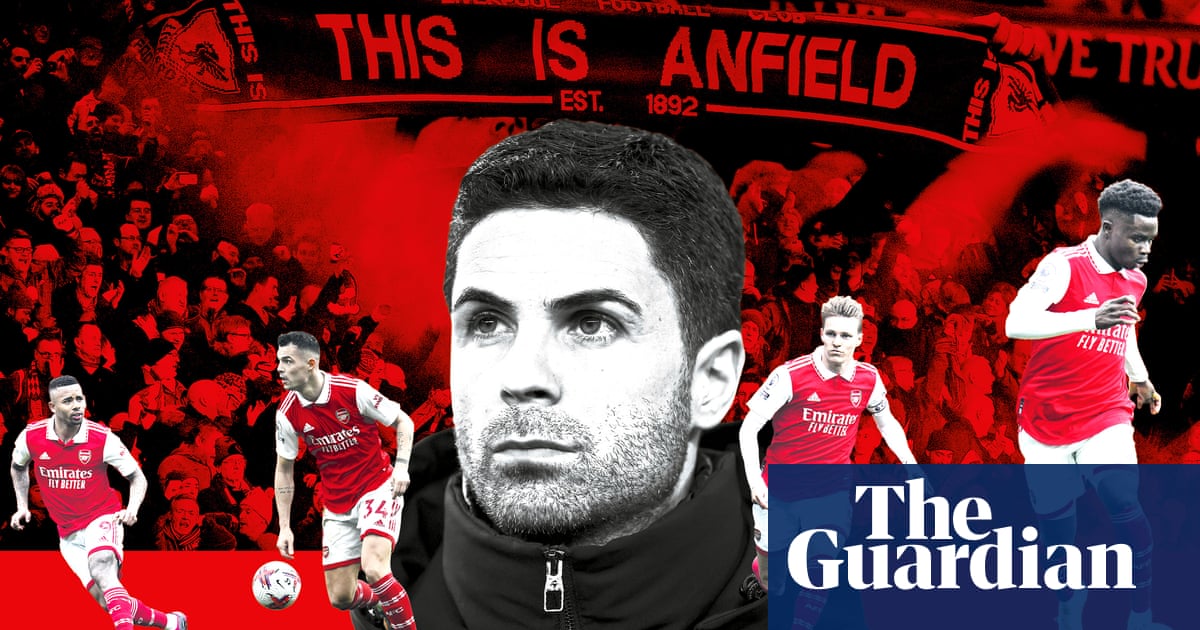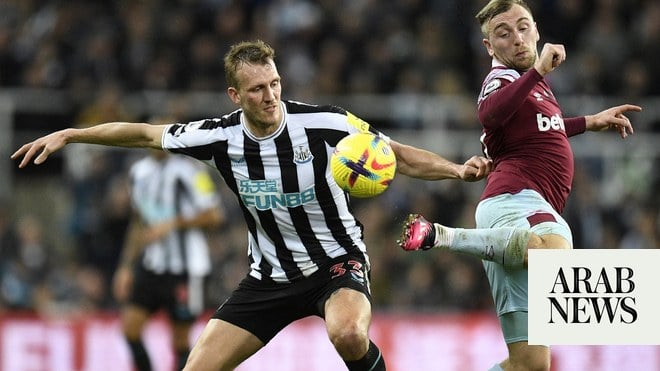
Something about it just felt wrong. Brave and heroic and wrong. Suspenseful and theatrical and wrong. This isn’t simply hindsight talking: the introduction of Mark Noble deep into injury time at the London Stadium, for the sole purpose of taking a crucial penalty with West Ham 2-1 down to Manchester United, was greeted by the home fans with the sort of qualified exultation that you might expect at a party when one of the guests turns up with a live goat. Obviously, you know, this is a very cool surprise. Well done on making the effort. We can’t wait to see what happens next. But, um – are you sure you’ve thought this through?
You don’t hear a lot these days about Calum Giles, the former stalwart Great Britain hockey player, and probably not without good reason. But back in the 1990s, Giles was a master of the drag flick who in the wake of the sport’s new rolling substitution rules carved himself out a hugely profitable niche as a specialist penalty-corner taker.
As soon as the corner was awarded, on Giles would trot to great fanfare and ceremony. Once the corner was invariably dispatched, off he trotted again, waving to his adoring audience like a Victorian conjuror. This tactic would work a treat until Giles missed a crucial strike in the biggest game of his life – the opening game of the Sydney Olympics against the world champions, the Netherlands – and retired soon afterwards.
As Noble’s well-telegraphed penalty was saved by David de Gea and the point slipped away from West Ham, perhaps it was possible to identify a broader lesson in all of this: in the dangers of tempting the sporting fates, of playing too fast and loose with established convention, with trying to be just a little bit too clever.
Certainly this felt like the dominant train of thought in the immediate aftermath of the game: that somehow the fault lay with David Moyes, whose reckless decision to send on Noble with just seconds remaining put his midfielder in an invidious position, piling extra pressure on an already-crucial kick.
At which point it is probably worth taking a step back, out of the noise and the swirl of instant judgment, and examining Moyes’s decision with a little coolness. As with Gareth Southgate’s unsuccessful decision to send on Marcus Rashford and Jadon Sancho before the Euro 2020 final penalty shootout, it was tempting to conclude that the decisive factor was Noble’s lack of prior game-time, as if running around for 90 minutes is the perfect preparation for taking a single shot from 12 yards.
Besides which Noble is, you know, a professional footballer. And not only that, but quite good at this penalty business: a veteran of more than 500 games, a spot-kick specialist who has taken literally hundreds of these things under all sorts of pressure. Talk to professional athletes and they tell you that this is the sort of scenario they dream about, a set of circumstances they live and train for, the sort of pressure they relish.
Had, say, Andriy Yarmolenko missed the penalty instead, then you can well imagine the opprobrium that would have been heaped upon Moyes for precisely the opposite reason. Sometimes in this game, you really have to judge the outcome rather than the process. If you miss a free shot at goal from 12 yards with no defenders present, then maybe it’s not the fault of the guy standing 60 yards away in the tracksuit.
To his credit Moyes stood by his decision, and perhaps the real frustration here was not the missed penalty but the fact it had been required in the first place. Until Jesse Lingard’s spectacular winning goal, West Ham had been every inch the equal of their opponents: defending bravely, moving the ball up the pitch with intelligence, taking the initiative and packing the United area with bodies. Even Moyes’s decision to go with a back four rather than a back five felt like its own statement: a vote of confidence in his defence and a determination to hit United where they were most vulnerable.
And yet, in the absence of Michail Antonio through suspension, you got the sense that this was going to be one of those afternoons when West Ham would need to create several chances to score one. Saïd Benrahma’s deflected first-half goal was a stroke of luck, but Pablo Fornals, Nikola Vlasic and Jarrod Bowen all missed good chances from inside the area, and several more promising attacks came to nothing.
This, perhaps, was the real point of contrast: between West Ham’s promising but misfiring forwards and the point-and-shoot precision of Cristiano Ronaldo, who aside from his customary goal seemed to spend most of the afternoon walking, grimacing and trying to win penalties.
The main difference between this West Ham team and their immediate predecessors – even from the last season or two under Moyes – is that they now genuinely seem to believe they can win these games. Even the way they slumped crestfallen to the turf at full time felt instructive, the hallmark of a team that knew they deserved at least a point. The denouement may have been crushing and cruel. But perhaps the real story here was of a team still growing into themselves, who even in profligate defeat came within one fateful kick of stealing the show.












